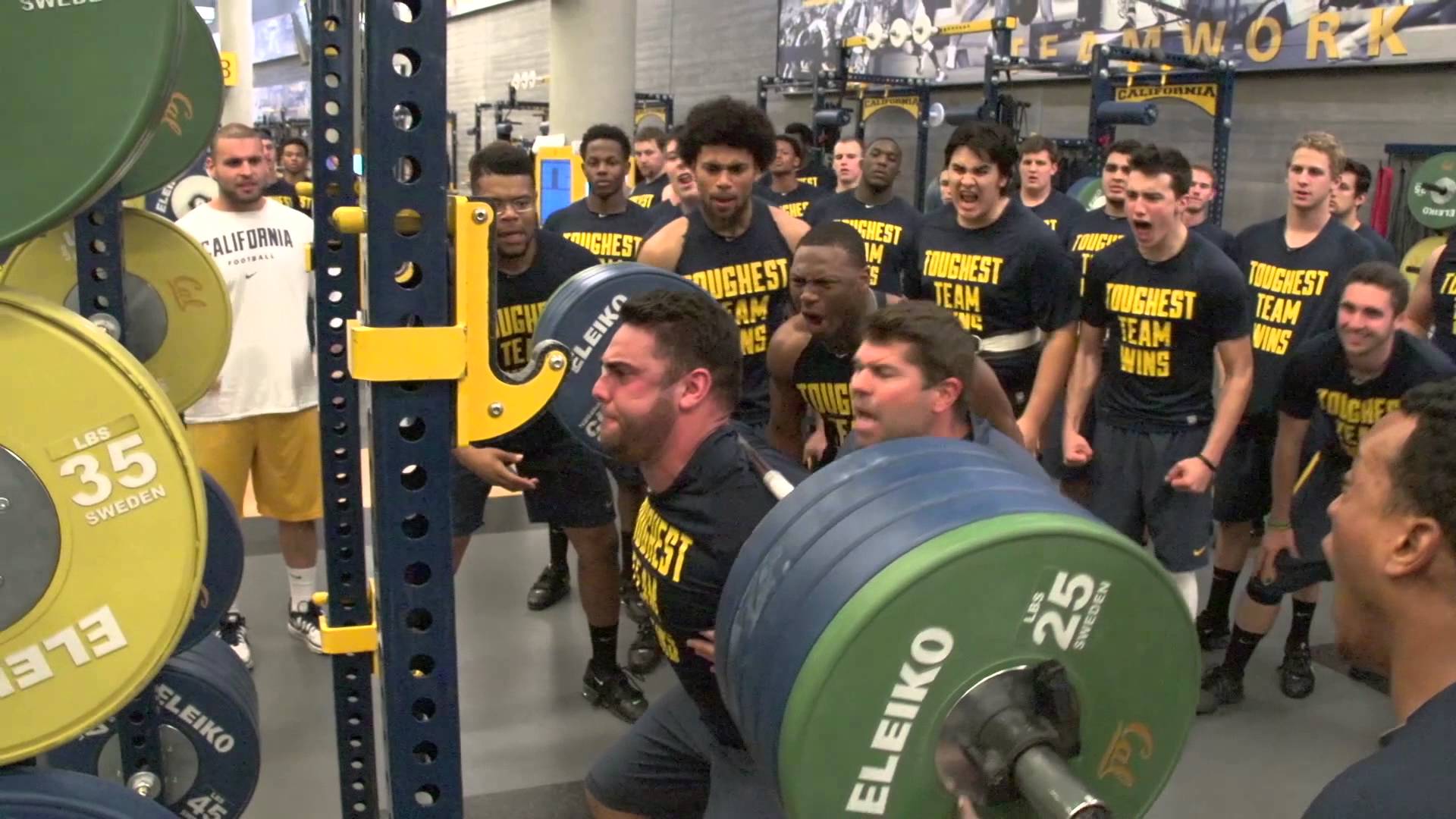3 Foolproof Ways of Building a Positive Weight Room Culture
It’s safe to say that as strength coaches we are generally “weight room junkies.” The sound of 45 lb. plates clanking together and guttural yells from straining athletes is what makes each day better than the last. A large part of the reason many of us entered this industry was in part due to the fact that we can wear workout gear to work every day and be surrounded by bumper plates, barbells, and sprint sleds. However, this is not the case for many of the athletes that we train.
The reality is many athletes enter a college weight room without thinking of how lifting can benefit their performance. In a few cases these kids are a strength coach’s dream, and in other cases, these kids will be your worst nightmare. Personally, I have wracked my brain to figure out a way to get athletes who don’t like weight training or don’t feel it is necessary to completely buy into what goes on in the weight room. Reaching these athletes is difficult, but with the right mix of motivational strategies, commitment and buy-in will happen.
#1 Highlighting Performance From OUTSIDE the Weight Room
You read that correctly. Similar to how strength coaches should not only focus on the numbers in the weight room increasing, not everything in our athlete’s lives is centered around their squat max either. If an athlete has a great performance in a recent game or competition, bring recognition to it. Maybe one of your true freshman played and scored their first goal, or maybe your distance runner took 5 seconds off of their mile time. Your tennis player may have earned scholar-athlete of the week from the conference. All of these are reasons to take time out of the session and highlight the efforts of one of your athletes. When your athletes know you are paying attention to them as a competitive athlete and not just as another name on a workout card they will begin to bring their walls down and be a part of the team a little more, fostering a more positive weight room culture.
Ready to give our programming software a shot? Take a 14-day trial, no strings attached >>
#2 Delegating Responsibilities
I took this idea from Marissa Viola, formerly of Rutgers University, during her presentation at the 2017 NSCA Coaches Conference. She presented many different support tasks that an athlete can do to help the strength and conditioning program whether they are an upperclassman, an injured athlete, or even interested in potentially becoming a strength coach.
There are many tasks that the strength coach does not have to be completely present for that an athlete can take on. For example, if you have a predetermined foam rolling routine that is done prior to each lift, then hand the card off to an athlete and have them be the voice in the room for a change. This can be applied for a cooldown stretch as well. These are small tasks that are usually delegated to interns or GA’s, but having athletes execute them, especially athletes you can trust to do a good job, will aid in creating positive weight room culture by getting buy-in from the team.
#3 Show Them You are Human
I learned this from being a male coach working with female athletes. Many female athletes come into college having never spent material time in a weight room which means they are already uneasy about the process. Add the fact that I am a stereotypical looking male strength coach (goatee, sunglasses, shaved head at times) and this can be plain intimidating for freshman female athletes.
While I like to be business-oriented during training sessions, I like to be a little more laid back and let my athletes see who I am around the training sessions. My first experience with this was when I happened to be coaching while waiting for the birth of my daughter. I would show up to warm-up the soccer team prior to a Friday game and give them updates about my wife’s pregnancy or how we decorated my daughter's nursery. We would end every warm up with “If I don’t see you guys on Sunday for warm-ups, y’all know why!”
After we had the baby I brought pictures to the next game and we looked at them in the locker room pregame. This may not seem like a big deal, but I showed this team the side of me that most athletes do not see. I am a sucker for my little girl and these girls knew that. Yes, the weight room is all business, but before and after sessions we could talk about baby stuff or whether my daughter crawled yet. This actually resulted in a few of the girls babysitting my daughter on multiple occasions. Showing them who I am away from the weight room helped earn their trust.
Conclusion
Getting “buy-in” from athletes is easier when they know who you are and that you care about them as people. All of the information above is not scientifically researched or presented from reading over hundreds sport psychology articles. These were simple methods for creating positive weight room culture that I have used with my athletes that happened to have worked. Hopefully, adding these tips into your coaching wheelhouse will aid in getting your athletes to commit to what your program is trying to accomplish in the weight room.
Upgrade your weight room with TeamBuildr.
[button link="https://teambuildr.com/signup?utm_medium=post&utm_campaign=content&utm_content=weight-room-culture" size="xl" bg_color="#ff6500" border="#ff6500" window="yes"]Start Your 14-Day Free Trial[/button]
Subscribe to our blog
Subscribe to receive the latest blog posts to your inbox every week.
Related posts

Why "Culture" is So Important for Millennial Athletes

5 Things You Need to Create a Strong Gym Culture
